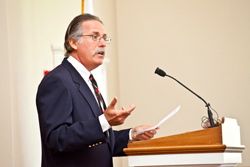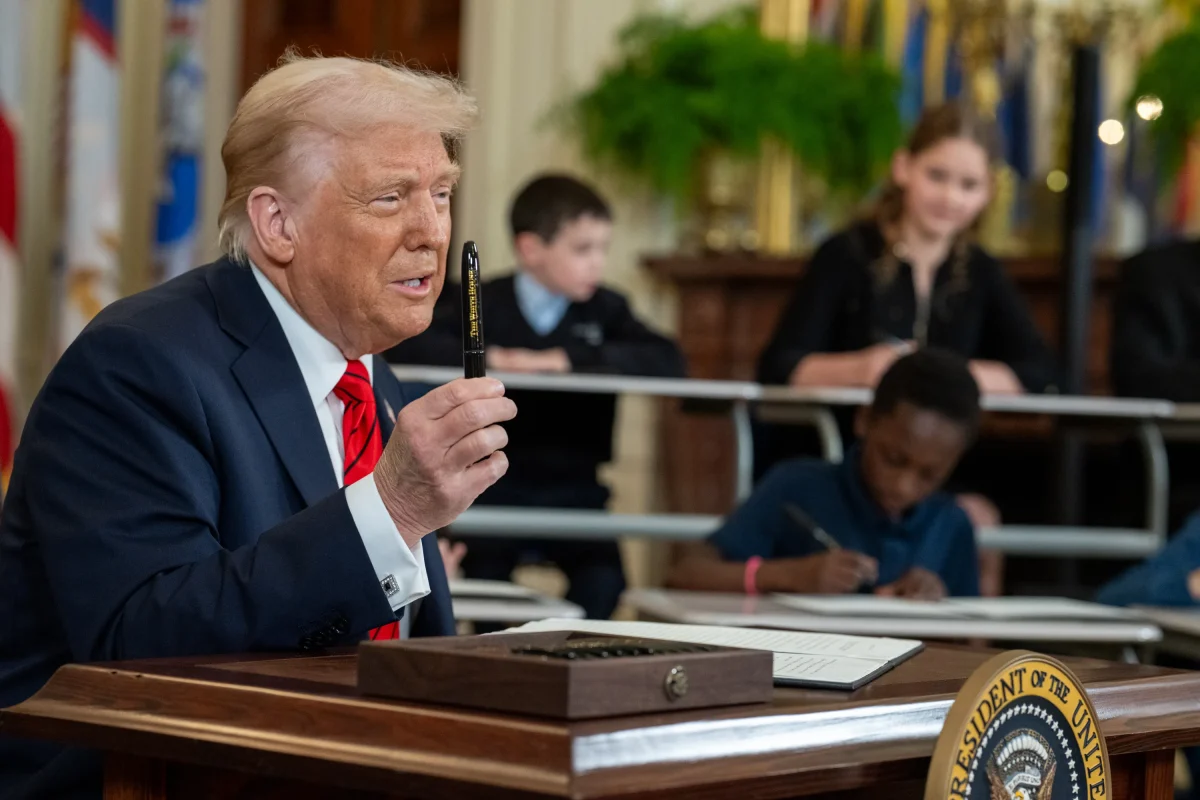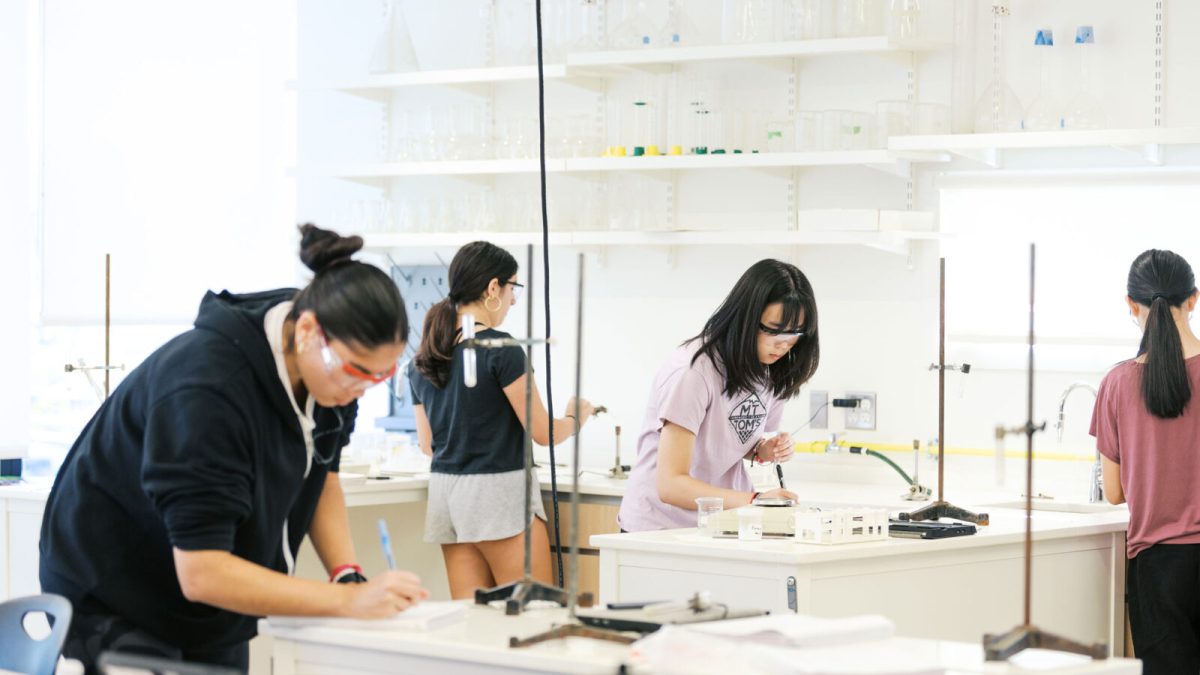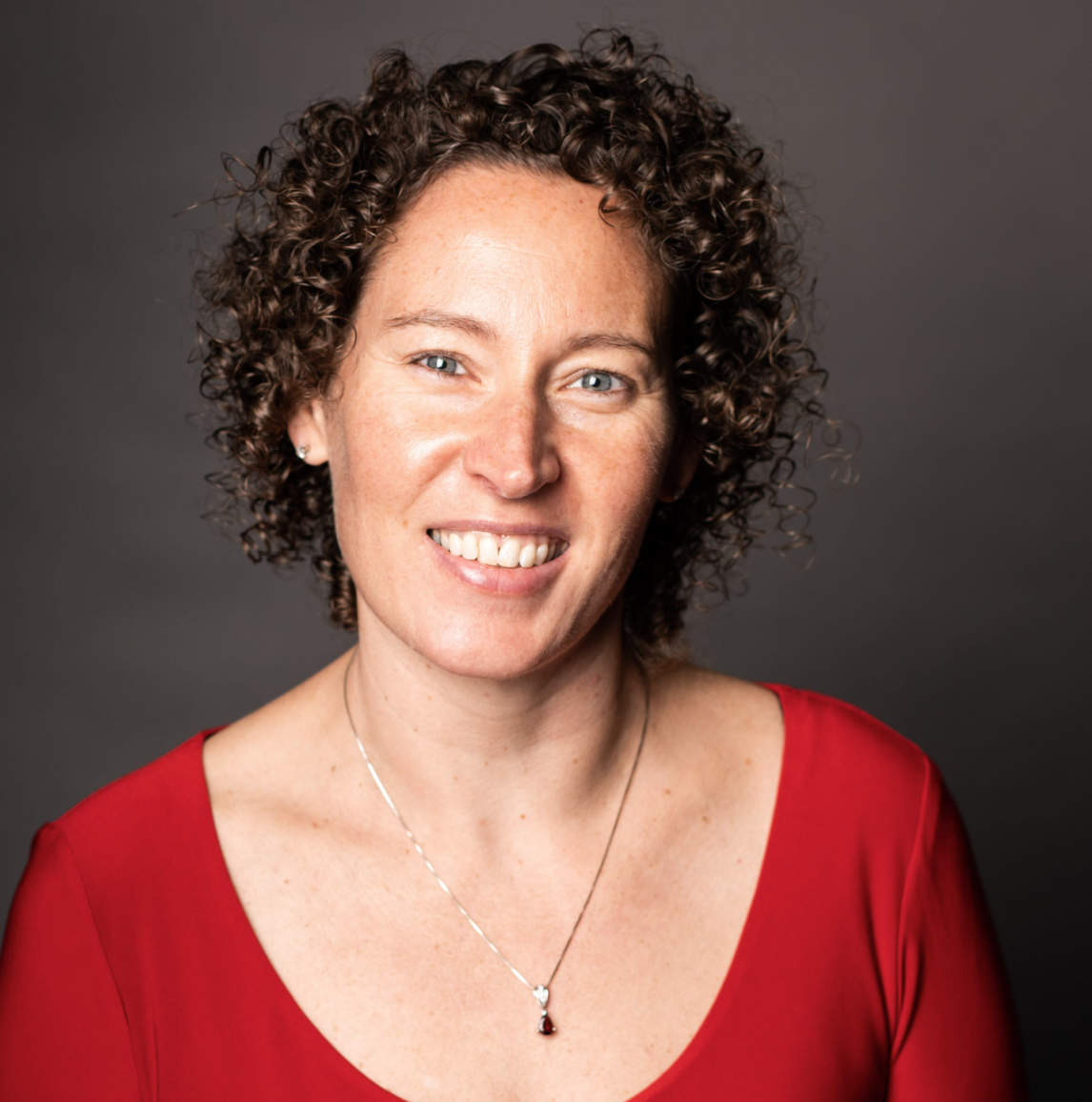By Mairead Poulin ’13
During a recent morning assembly, alumnus  was awarded the Ward Medal for his service to humanity for his volunteer and charity work. Parent to members of the classes of 2005 and 2007, Tatelman is a brain tumor and cancer survivor who has contributed to many cancer research foundations and has volunteered as a pilot for a nonprofit organization that transports medical patients to Boston for treatment.
was awarded the Ward Medal for his service to humanity for his volunteer and charity work. Parent to members of the classes of 2005 and 2007, Tatelman is a brain tumor and cancer survivor who has contributed to many cancer research foundations and has volunteered as a pilot for a nonprofit organization that transports medical patients to Boston for treatment.
Tatelman was introduced by classmate Grant Randall on Tuesday May 10th in the chapel. Randall’s optimism about the present and future of Williston easily energized all the sleepy-eyed students. With members of his class laughing along from their places in the corner of the room, the entire building was told to rise to their feet to shout the school’s name in preparation for the main speaker, Jack Tatelman.
Tatelman opened his dynamic speech with the quip, “I sell beer for a living. That’s actually what I do.” This comment made everyone puzzle over how exactly he came to win the award. Tatelman agreed with the crowd’s confusion, showing off a picture of himself as a Williston student. Once a shaggy-haired, goofy, smiling kid, Tatelman is now a successful individual whose unconventional speech debunked the myths he learned at Williston, as well as instructing the crowd on the facts he knows today.
 Some of the myths were funny, some serious, all interesting. A few of the ideas that Tatelman put forward, such as his attention grabbing “you don’t need sleep,” as well as, “you don’t have to wait for dessert if you don’t want to” made almost every student laugh and relax a little, lightening the mood around the room. In between these funny ideas, Tatelman provided more serious advice. He informed his audience that “we are not limited by our abilities,” and “don’t believe that you are immortal; you’re not.” These thought-provoking statements brought forth the seriousness of his message, and caused everyone to pause and question the way they live their lives.
Some of the myths were funny, some serious, all interesting. A few of the ideas that Tatelman put forward, such as his attention grabbing “you don’t need sleep,” as well as, “you don’t have to wait for dessert if you don’t want to” made almost every student laugh and relax a little, lightening the mood around the room. In between these funny ideas, Tatelman provided more serious advice. He informed his audience that “we are not limited by our abilities,” and “don’t believe that you are immortal; you’re not.” These thought-provoking statements brought forth the seriousness of his message, and caused everyone to pause and question the way they live their lives.
Although Tatelman presented a good speech, there were, of course, some drawbacks. The very idea behind his words that Williston is showing us the wrong things was puzzling. I think that everything we take away from our high school experience is subjective, and I don’t believe that some of the things Tatelman claimed as his myths learned in school were messages that the school is teaching us. For example, “you have to be lucky” doesn’t strike me as something I would take away from my Williston education, quite the opposite really. Additionally, the message “don’t risk failure” isn’t something I think my school has taught me. Many of my experiences have encouraged me to embrace and not be afraid of failure, for it is just a stop on the road to success.
As a whole, the speech was a good one. While I had initially thought that Tatelman could have better made his point by illustrating the reasons why he received the award, his experience with his medical issues and how he came to do the volunteer work he does today, I have since realized that maybe that was what he was trying to say in the first place. It’s not about his past; it’s about our future. And that’s why his final statement, a piece of homework for his classmates, the faculty, and especially us students, was so important. The question “what would I do in life if I knew I couldn’t fail?” got me thinking, and made me take into consideration everything my life is, and what I want it to be. His inspiring message of taking the chance while you have it and creating your own future today was something that many students can and will benefit from. His idea to take a step back and do what you really want to was empowering, and, in my opinion, the most important point of his speech. That statement made me enjoy and listen to his words.
If you want a second chance to hear Tatelman’s speech, check out the video and really listen to his words. You won’t be disappointed.









